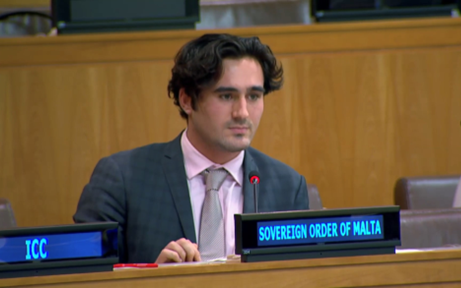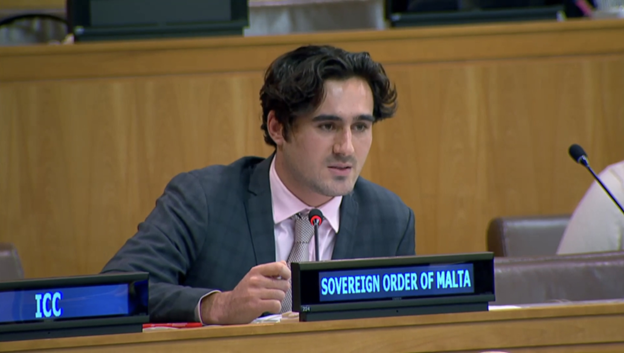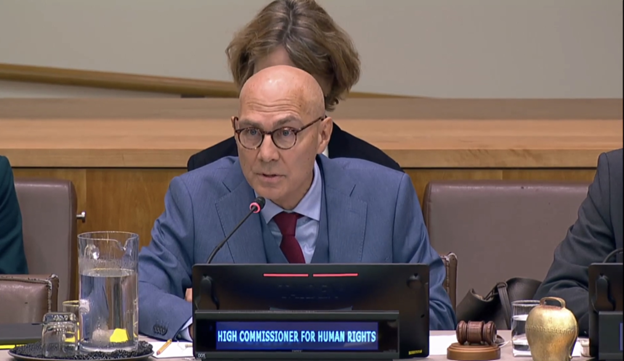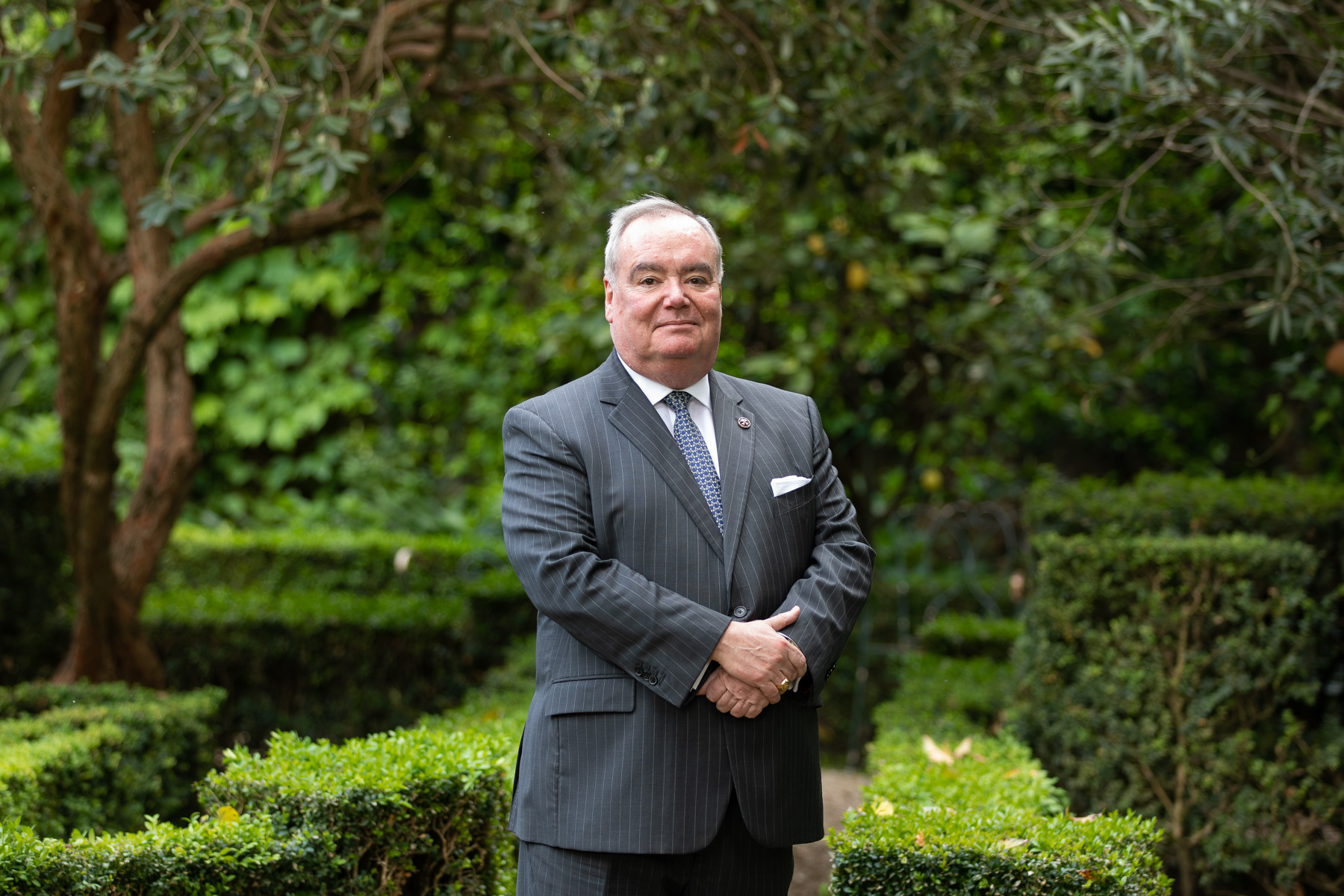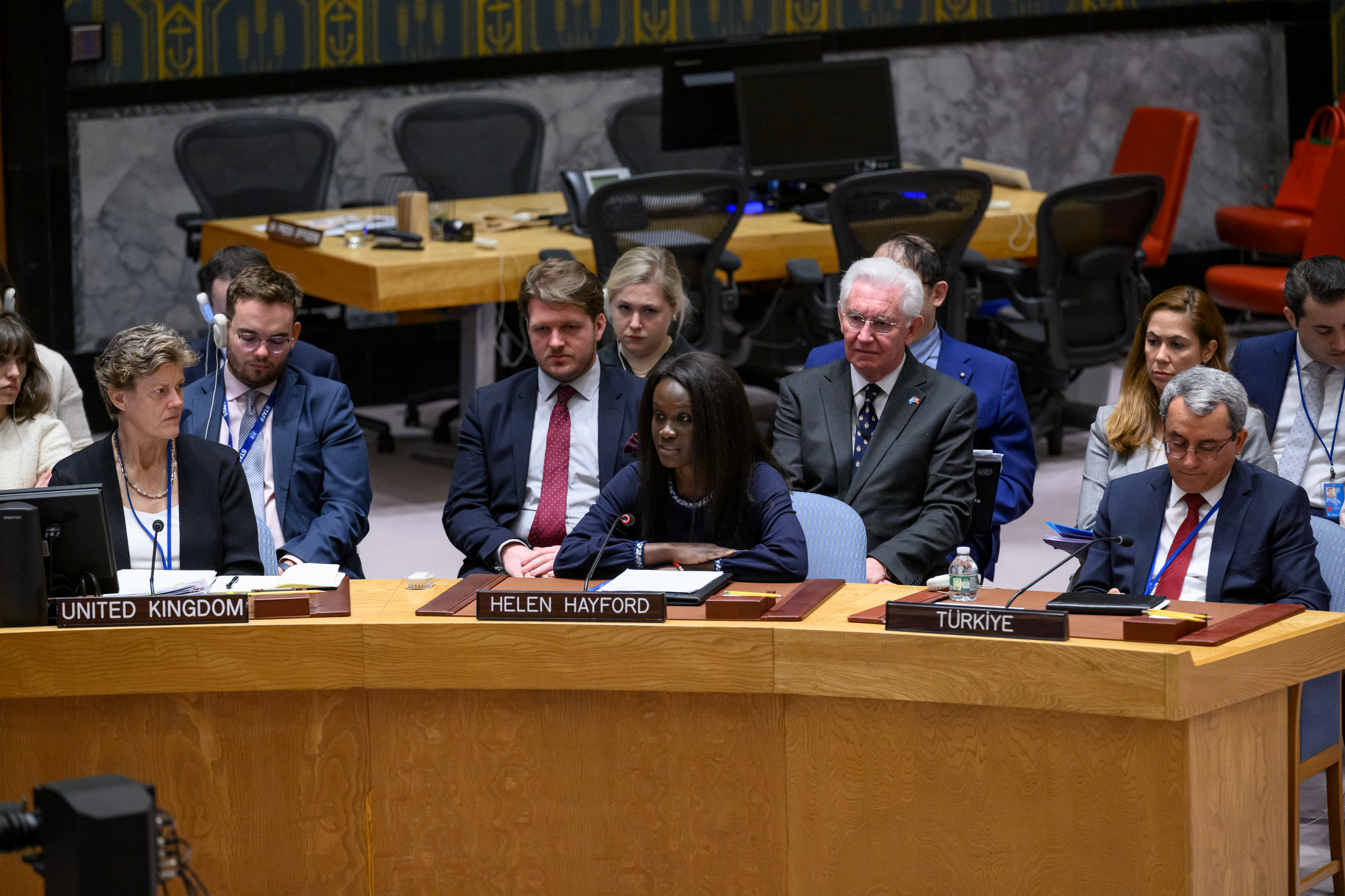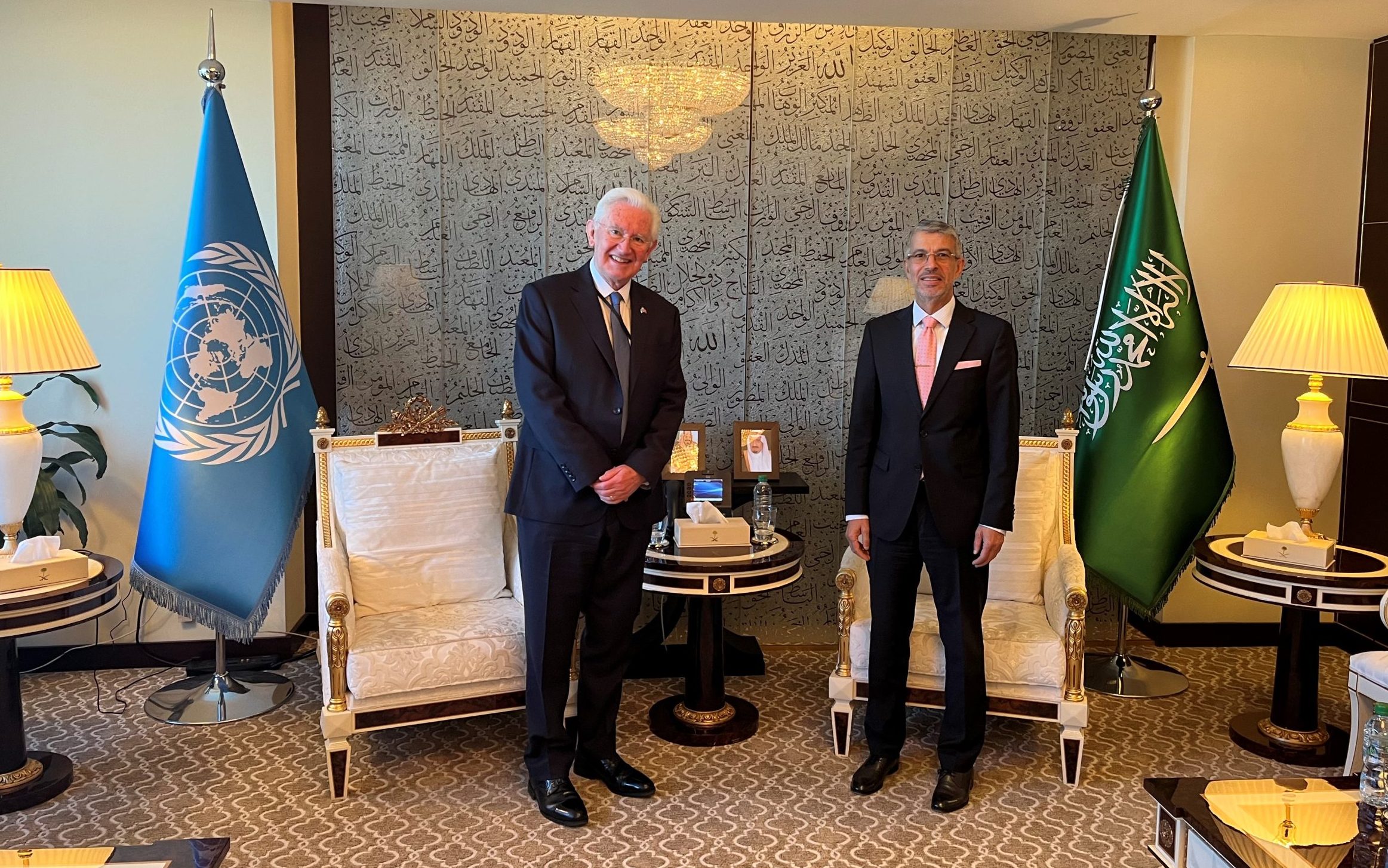On October 10th, Mr. Scalabrini-Mckellar delivered a statement to the United Nations High Commissioner for Human Rights. During this Third Committee session, delegates had the opportunity to engage with the High Commissioner and contribute to the dialogue that concluded the meeting.
In his statement, Mr. Scalabrini-Mckellar outlined the sacrosanct principles that the Order of Malta upholds when delivering aid, with a particular emphasis on non-discrimination and collaboration with local and international stakeholders. These foundational elements have been key to the Order’s successful aid delivery throughout its nine-century history. He referenced our recent operations in Morocco, where we provided food, shelter, sanitation, and disaster preparedness to an earthquake-stricken community, to illustrate the effectiveness of our approach. He first highlighted how working closely with the affected communities results in an efficient and tailored response. Second, he stressed the importance of our collaboration with the faith-based organization Caritas International, which enabled us to obtain accurate and up-to-date information on the unfolding situation, ensuring that our response was both “timely and targeted.”
Mr. Scalabrini-Mckellar established the essential and undisputed role that faith-based institutions play in preventive and protective efforts. He illustrated how adopting a similar approach to the one utilized by Malteser International could enhance the implementation of UN Human Rights instruments. Mr. Scalabrini-Mckellar concluded by posing a question to the High Commissioner, inquiring about the strategies he plans to implement to foster increased cooperation among the diverse array of stakeholders, both within the UN and on the ground. He stressed the necessity for enhanced collaboration among nations, international organizations, civil society, and private sector entities to optimize resource mobilization and the sharing of expertise.

